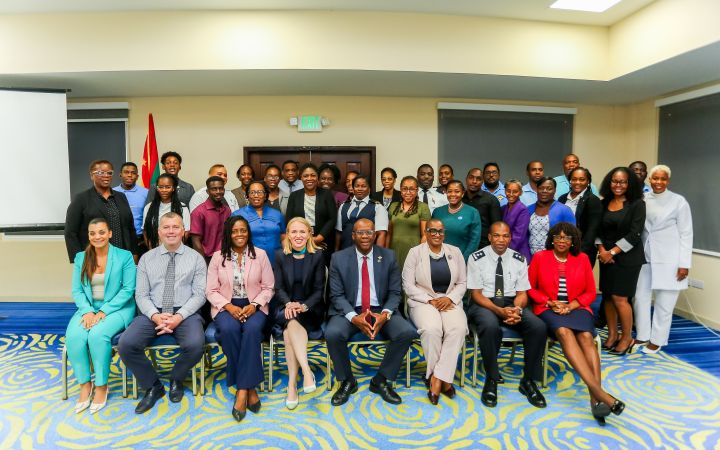
Grenada Harnesses Data Power to Strengthen National Statistics
Just recently, Grenada took a significant leap forward in modernizing how it produces official national statistics. From June 11 to 13, 2025, the country hosted a transformative workshop titled "Harnessing Administrative Data Sources for Official Statistics Production: Migration and Environment/Climate Change Statistics Cases." It was an initiative spearheaded by Grenada’s Central Statistical Office (CSO), in collaboration with UNITAR and several United Nations divisions.
Now, let me tell you what makes this event such a milestone.
Also Read:- Who Will Rule the 2025 MLB Home Run Derby Tonight in Atlanta?
- Azealia Banks Blows Up the Internet with Explosive Accusations Against Conor McGregor
This wasn’t just another meeting or bureaucratic discussion. It was a hands-on, focused effort to shift Grenada's national statistics system into a more modern, data-driven age. The workshop gathered key administrative data holders — representatives from different ministries, agencies, and departments — and put them in direct engagement with technical experts. The goal? To unlock the potential of administrative data and make it a core element of how Grenada tracks, plans, and makes decisions on major issues like migration and climate change.
Facilitators from the UN Statistics Division, ECLAC, and UNITAR guided participants through how to map administrative data sources and assess data quality. This isn’t just about collecting more data — it’s about making sure that the data is accurate, relevant, and timely. That’s crucial for real-world decision-making.
Two other countries, the Maldives and the Dominican Republic, also shared how they’ve successfully used administrative data in their own statistical systems. Their experiences gave valuable insights and helped underscore just how impactful this shift can be.
By the end of the three-day workshop, working groups were formed and a detailed roadmap was drawn up. Pilot projects are already in progress, focusing specifically on migration and climate-related statistics. The outcomes and recommendations from these projects will be presented in October 2025.
This initiative is part of the broader World Bank-funded "Data for Decision-Making" project, with the Organization of Eastern Caribbean States (OECS) at the helm. And it’s not just about Grenada — it’s about setting a model for the entire region.
So, when we talk about building resilience, improving governance, or addressing environmental challenges, it all starts with good data. Grenada is proving that with the right tools, partnerships, and vision, even a small island state can lead the way in smart, data-driven development.
Read More:

0 Comments